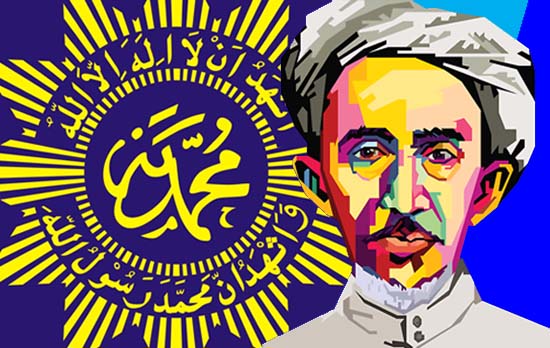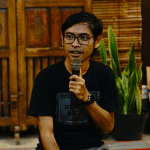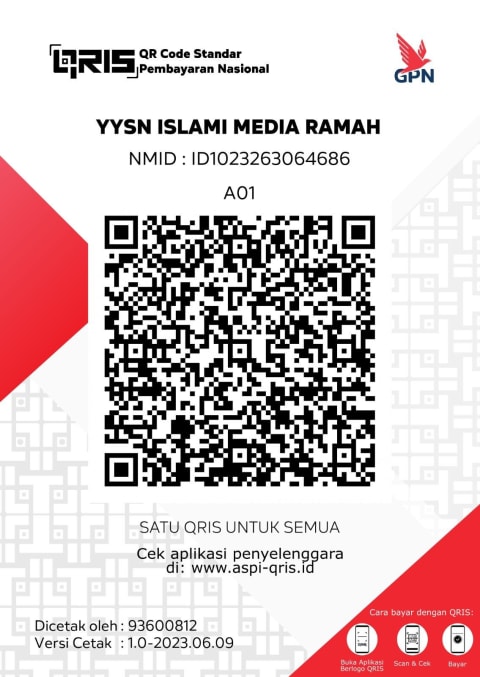
Islam, since its beginning, has been concerning the poor. Even according to the Quran, mentioned that the religious liars are those performing prayers (Salat) but failed to feed the poor and neglect orphans, said in Surah Al-Ma’un [107]. This mission is well understood by Muhammadiyah, one of the largest social-religious organization in Indonesia, as surah Al-Ma’un became the spirit of its establishment.
Muhammadiyah was founded by Ahmad Dahlan in early 20th century in Java (1912), with Islamic Mataram Sultanate (Keraton Mataram) as the background. The setting was quite a challenge for Ahmad Dahlan and Muhammadiyah. Kauman—a region where Muhammadiyah was established—was a region of local headman (penghulu) and courtiers of palace (abdi Keraton). The tradition of feudalism and anti-criticism is a another challenge for Muhammadiyah at the time. Furthermore, the challenge is increasingly complicated by poor and less-educated society.
This problem motivated Ahmad Dahlan—the founder of Muhammadiyah—to reconstruct social behavior, which mostly relied on tradition, to be in accordance with modern and Islamic rules. Among the early movement of Dahlan began with fixing Qiblah direction. Javanese Muslims often performed prayers by facing straight to the West, rather to measure exact direction leading to Ka’bah. In fact, one simple change was effectively drawing controversy for Ulama. Being expelled from the circle of Kauman religious elite is the risk accepted by Dahlan.
People’s lack of education and poverty pushed Dahlan to initiate “Al-Ma’un movement”. This movement has three domains. The first is social-charitable domain: providing meals to those in need. The domain is based on Surah Al-Maun [107]: 1-4 that the religious liars are those who pray (Salat) but failed to feed the poor and neglect orphans. Muslim’s religious piety would be in vain if it is not performed to social piety.
The poor (Miskin), for Ahmad Dahlan, was a category referring to poverty caused by the colonial economic policies putting pribumi (the colonized indigenous society) as the third class group, as the result of the colony and the wealthy greed. Meanwhile, the orphans (Yatim) were understood as the community suppressed by colonial wickedness both in political and cultural rights. The colonial political policies systematically eliminate local societies from the aspiration to unite in movement.
The second is educational domain (schooling/tadarrus) combining religious education and secular education. This domain is important because the colonial restricted information and discriminated education access to be accessed by indigenous people. Censoring books from abroad was also done by the colonial in the immigration gate. And at the same time, sharing an opinion—both written and talk— was strictly under colonial’s surveillance.
And, the third is social service and healthcare domain to improve the public prosperity. Out of those three domains of Al-Ma’un movement, we are able to witness the result. Nowadays, Muhammadiyah is recognized for having lots of hospitals, schools, universities and philanthropy movements spread across Indonesia.
Ironically, Muhammadiyah charitable development is more and more seduced by materialism and profit oriented, as a part of neo-capitalism. The spirit of Al-Ma’un has changed to elite, materialism-oriented and thus, set aside the early spirit of Al-Ma’un.
Also, Muhammadiyah charitable development doesn’t seem to integrate with other domain. The poors (al-mustadhafin) are unable to access proper education since getting education in Muhammadiyah schools/universities is as expensive as other universities.
The philosophy of “education for all” which represents the basic value of inclusive education is not understood as “open for the public”, including those who are unable to pay the tuition. Besides, poor people are difficult to access medication in Muhammadiyah Hospitals because they have no insurance to pay the health services.
Muhammadiyah effectiveness needs to involve the participation and integration of intellectuals and religious activists to address the poor and oppressed people. It will create a significant concession for people in need (al-mustadhafin) through the new visble social movement.
Al-Ma’un theology has suggested a concept of the sin in social and historical reality, which reflects the absence of compassion in horizontal relationship (between human) and vertical relationship (between human with Allah). According to this theology, such “socio-historical sin” demands a radical liberation and finally, political liberation. Because the structural inequality creating injustice, social and economic gap, represents the core of crime in the world.
To confront the widening gap, discussions focusing on the theology and the social, political, and economic from the Quran are able to provide a stepping stone and goodnews for the poor. Only this way, Muhammadiyah can return to its spirit of Al-Ma’un movement, taking the inspiration of Quran for liberating humanity.
*Anda bisa membaca versi Inggris dari Islami.co di en.islami.co atau klik di sini



